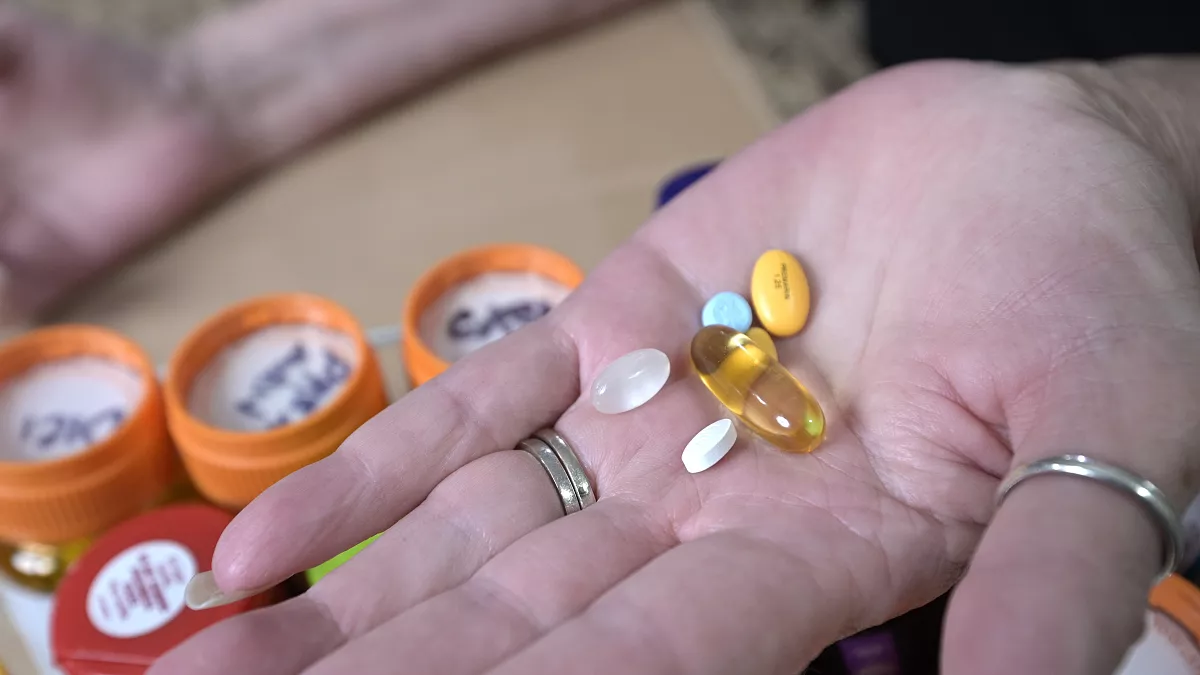
New Delhi: It’s terrifying to imagine a scenario where one falls ill but has no effective medication for treatment. While it could seem a little far-fetched in today’s modern, tech-advanced world, this is happening almost daily in hospitals, according to medical experts.
Many city-based doctors said antibiotics, which were once effective in treating serious infections, are now failing, leading to higher mortality rates and prolonged and costly treatments for those who survive.
“Antimicrobial resistance (AMR) is a reality and is spreading silently across hospitals and communities, putting millions at risk,” says Dr Ajay Shukla, director and medical superintendent, ABVIMS & RML Hospital.
AMR occurs when bacteria, viruses, fungi and parasites evolve and become resistant to the medicines used to treat the infections they cause, he said. As a result, antibiotics that once cured serious infections fail to work.
Medical experts will discuss AMR in detail at the upcoming session of a scientific programme organised by Doctors Without Borders/Medecins Sans Frontiers (MSF) in collaboration with RML Hospital, scheduled for Friday. A full session, ‘AMR of New Antibiotics and Associated Surveillance Systems: Barriers and Potential Solutions’, has been dedicated to the issue, which has become a major concern for medicos across the globe.
Dr Shukla stressed the severity of the situation, stating that minor cuts can become life-threatening and routine surgeries can become high-risk procedures due to the ineffectiveness of antibiotics. “The battle against antimicrobial resistance has already commenced,” he said.
Dr Mala Chhabra, senior consultant and associate dean (research), RML Hospital, said many patients often underwent multiple courses of antibiotics, frequently without appropriate medical supervision. These patients harbour drug-resistant infections, complicating treatment efforts. Overcrowded healthcare facilities and inconsistent infection control measures worsen the problem, and delays in accessing effective diagnostic tools further complicate patient care, often resulting in loss of life. Physicians find themselves ill-equipped to combat these infections, not due to a lack of expertise, but because the available antibiotics are losing their efficacy, the doctor said.
A study published in The Lancet in 2022 revealed AMR caused nearly 1.3 million deaths globally in 2019, with the highest burden in low- and middle-income countries, including India. However, these numbers may be just the tip of the iceberg due to underreporting, lack of diagnostic resources and inconsistent data collection. These micro-organisms tend to be more devastating for vulnerable groups, such as newborns, the elderly, and those with underlying chronic medical illnesses, said experts.
Dr Sujata E Mathews, professor, department of medicine, RML Hospital, said the rise of AMR is largely man-made, driven by over-the-counter access to antibiotics, improper prescriptions and a lack of stringent antibiotic stewardship. For years, antibiotics were handed out too easily, without sufficient oversight or education about their proper use.
To tackle the problem of AMR, several measures must be implemented. Surveillance must be strengthened, with increased reporting of resistant infections and a national-level commitment to enforcing existing AMR policies, said doctors. Global investment in the development of new antibiotics and alternative treatments is essential. Policymakers and pharmaceutical companies must prioritise research and development to identify new antimicrobials. Preventive strategies, such as sanitation, vaccination and equitable access to appropriate treatments, must be expanded, especially in low- and middle-income countries.







